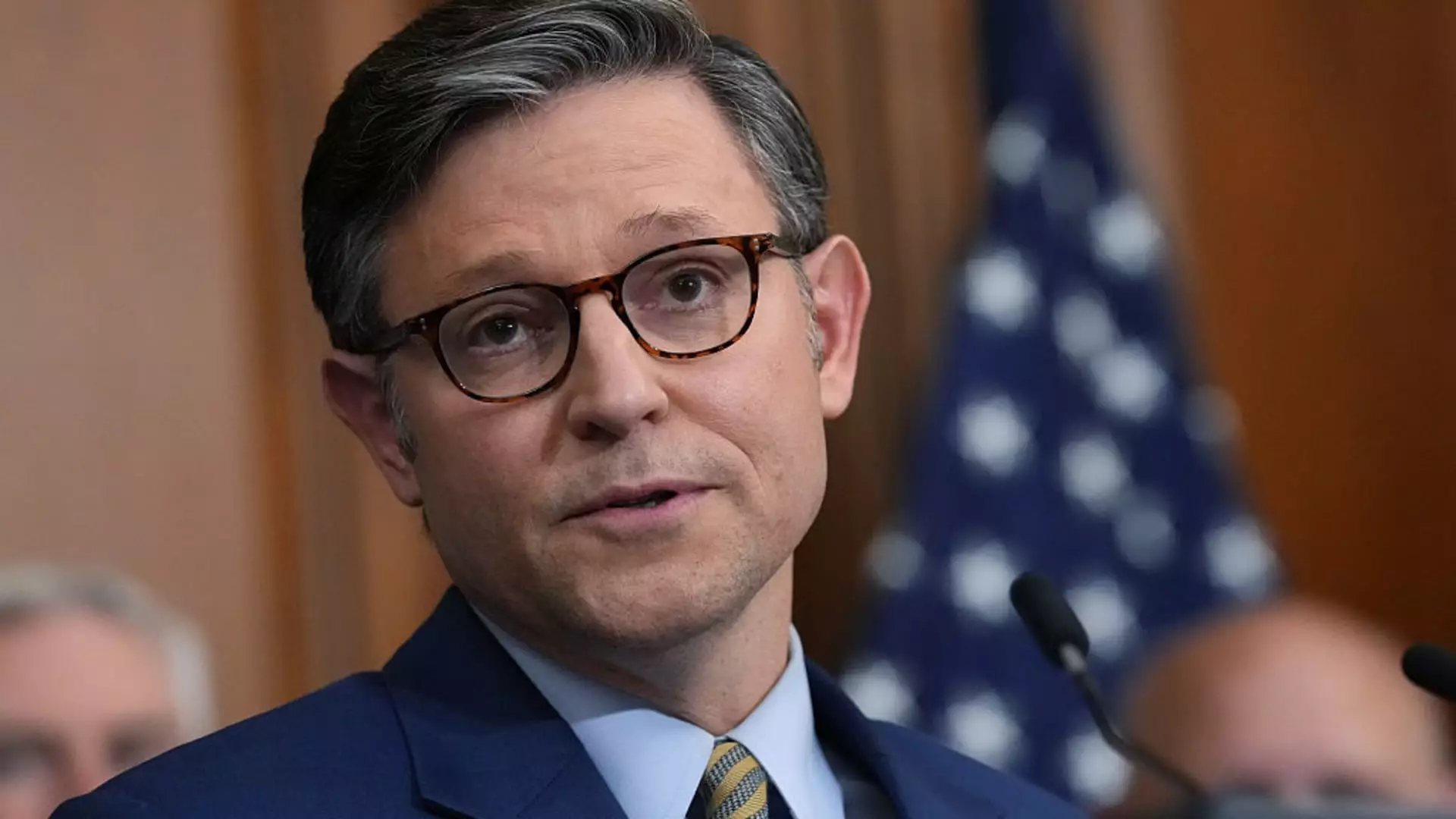In a time when the welfare of millions hangs precariously in the balance, recent statements and actions from Speaker Mike Johnson and House Republicans reveal a startling disregard for the implications of their proposed budget cuts to Medicaid. These cuts, cloaked in the rhetoric of “common sense” and responsibility, are more than mere bureaucratic adjustments; they represent a decisive shift that threatens the healthcare access of the most vulnerable populations in America. Instead of fostering an environment that enhances support for those in need, these new regulations point to a fundamentally flawed ideology that takes a punitive approach to social safety nets.
Speaker Johnson’s defense of the cuts comes across as a blend of bravado and ignorance wrapped in a veneer of compassion. When he claims that “4.8 million people will not lose their Medicaid unless they choose to do so,” it undermines the real stakes at play. Many individuals who rely on Medicaid do not have the luxury of choice; for them, the burden of complying with new work requirements or navigating convoluted bureaucratic processes may be insurmountable. Rather than empowering people, the imposition of these burdens emphasizes a disregard for the socioeconomic barriers that many face, painting a picture of a Republican leadership that is out of touch with everyday realities.
Work Requirements: A Flawed Approach
The argument that able-bodied Medicaid recipients should adhere to work or volunteer requirements is not only simplistic but also deeply problematic. Johnson’s assertion that participation in job training or community service for 20 hours a week is not too burdensome is a classic case of privilege leading the narrative. It’s easy for someone in a position of power to make sweeping statements about personal responsibility without recognizing the challenges faced by individuals in lower socioeconomic strata. The disparities between economic classes mask the complexities of access to stable employment, transportation, and childcare—all of which can impede one’s ability to meet these requirements.
The proposed work reporting requirements have been denounced as little more than a bureaucratic trap designed to weed out those who need assistance the most. The reality is that those struggling to get by are often forced into precarious jobs with little security, making it exceedingly difficult to juggle additional responsibilities. This policy is less about helping individuals achieve independence and more about pushing people out of a system that is designed to provide support during tough times. Such measures will most certainly escalate the number of uninsured individuals, leading to a national health crisis that could ripple across communities.
Political Consequences and Ethical Dilemmas
The backlash against the Medicaid cuts is not merely a Democratic talking point; it reflects a growing unease within the Republican Party itself. Members like Sen. Josh Hawley have raised alarm bells about the moral implications of stripping health insurance from working-class Americans. By framing the issue as one of ethics, Hawley underscores a critical conversation about what it means to govern responsibly in a society that prides itself on equal opportunity. Economic justice cannot be attained when the government facilitates the disintegration of essential support systems that keep people afloat.
Moreover, the comments from lawmakers facing public dissent at town halls underscore a critical truth: the electorate is waking up to the realities of these policies. Many constituents recognize that aggressive cuts to Medicaid and other safety nets will ultimately harm their communities. As Representative Mike Flood, R-Neb., experienced boos for supporting the budget cuts, it became painfully clear that the facade of a united Republican front is beginning to crack under the weight of public opinion. Politicians must realize that pushing through policies that undermine vulnerable populations could be politically disastrous; alienating the very segments of society they claim to represent could cost them their political futures.
While the fight over Medicaid cuts continues, it is essential for advocates, individuals, and concerned citizens alike to engage actively in the conversation about health care and social safety nets. The narrative surrounding these provisions needs to shift from one of punitive measures to one that fosters support, understanding, and growth within society. With growing opposition and a rising tide of public sentiment against the cuts, the potential for positive change exists. The question remains whether those in power will heed these warnings or stubbornly pursue a path that veers dangerously close to neglecting the health and welfare of millions.

Leave a Reply